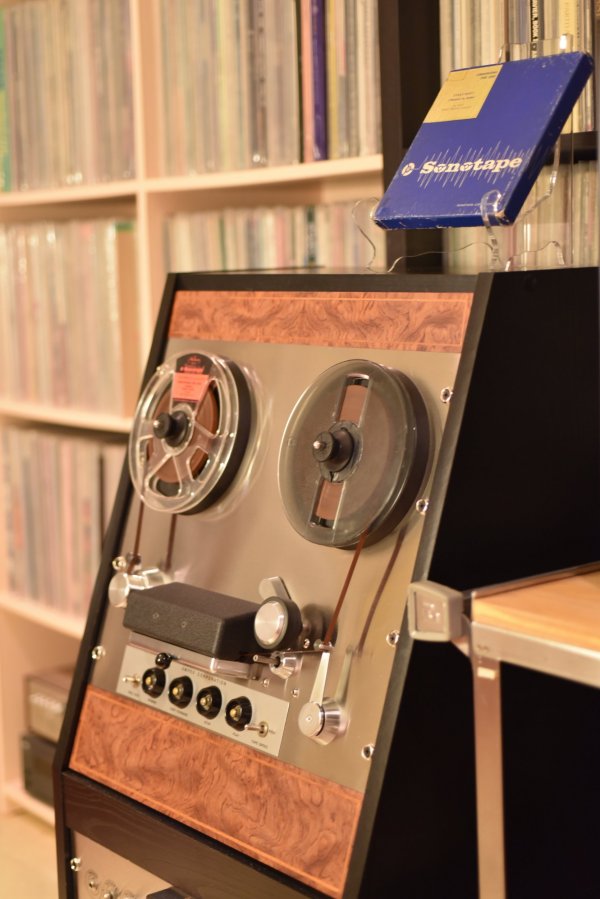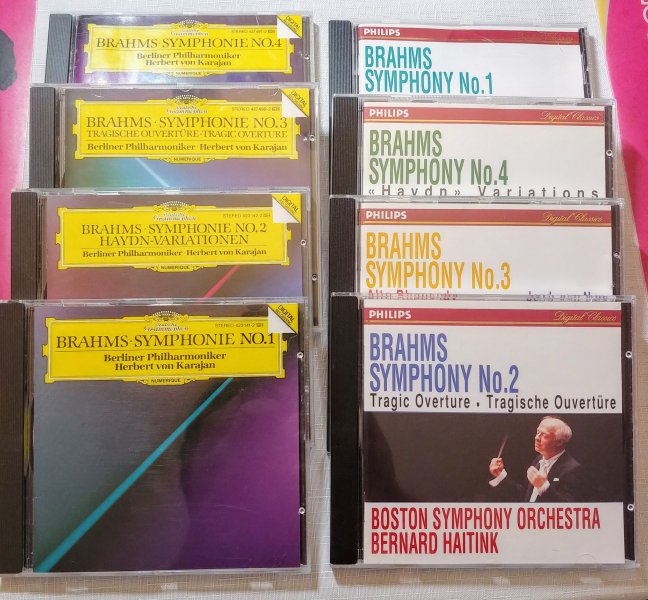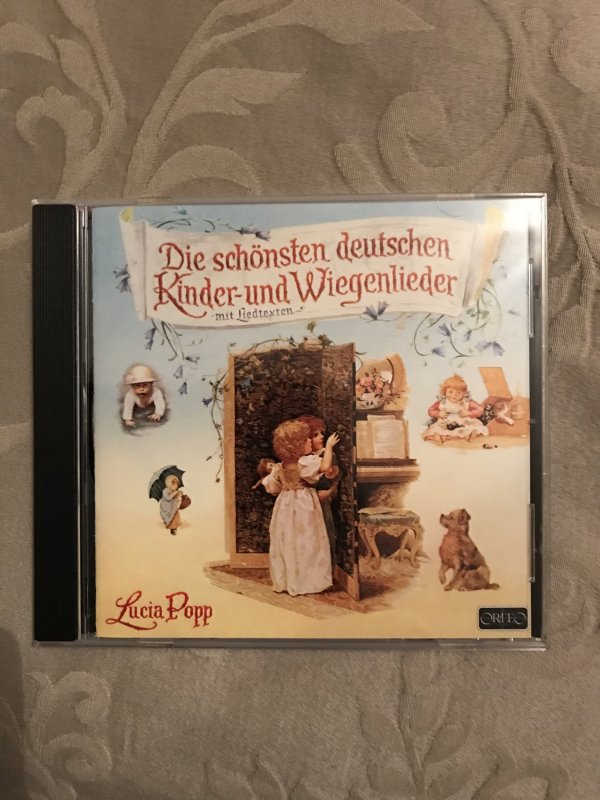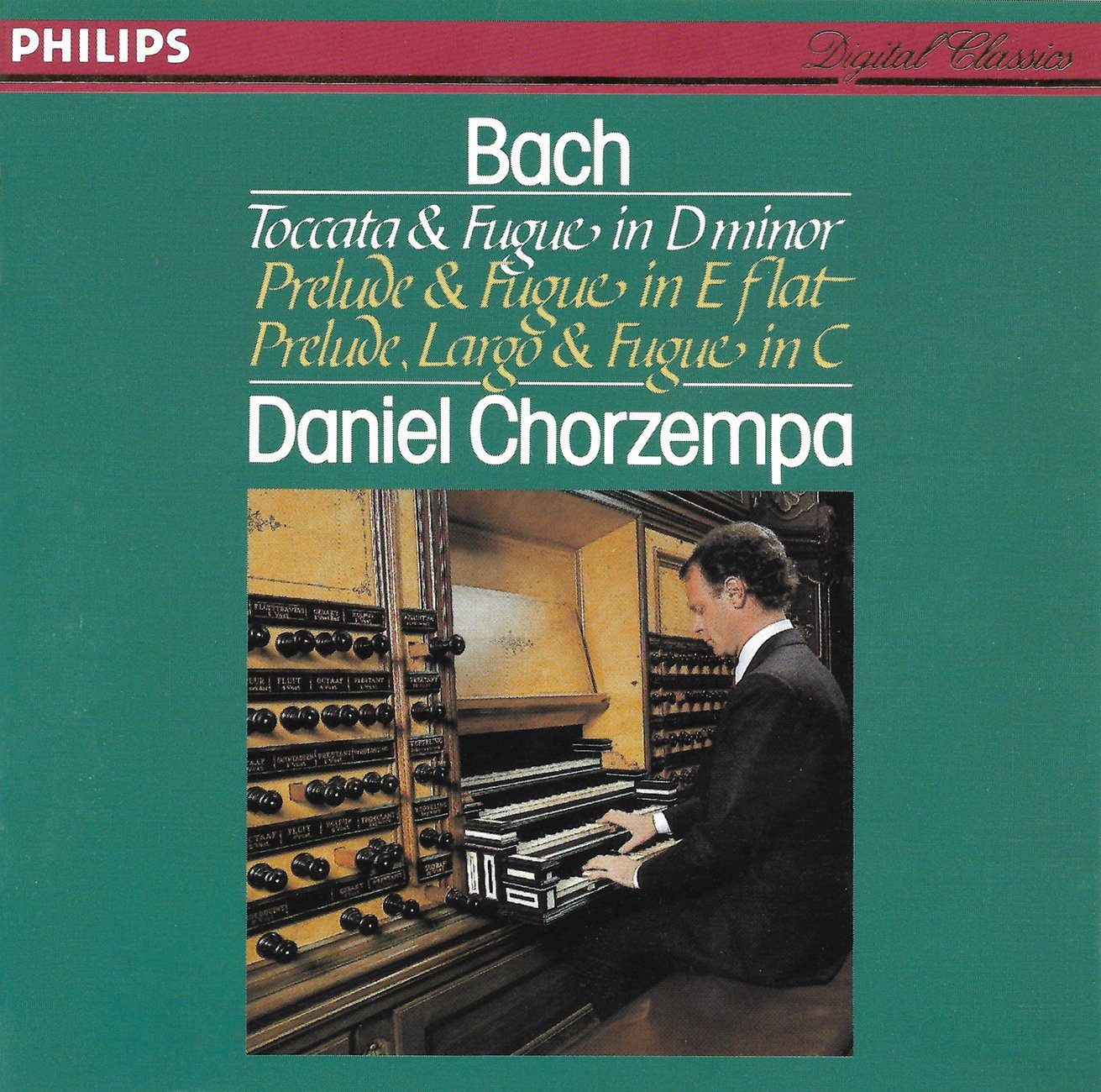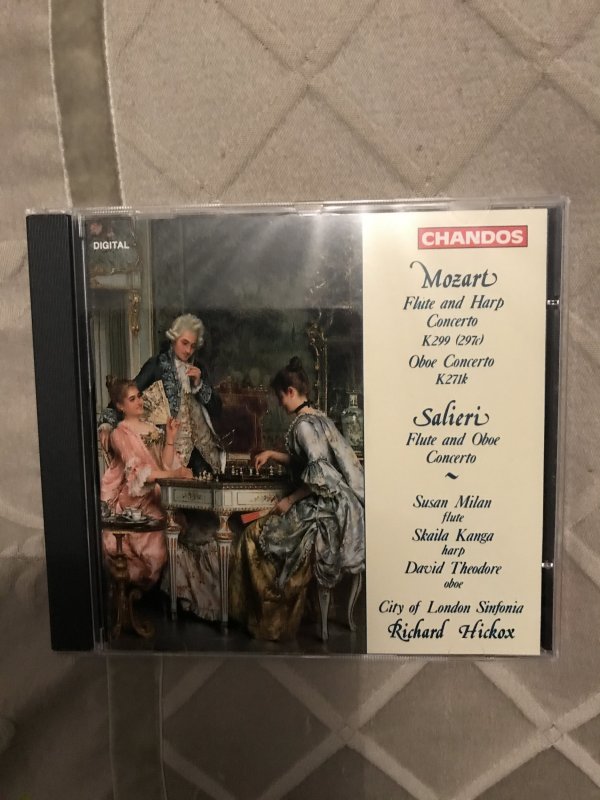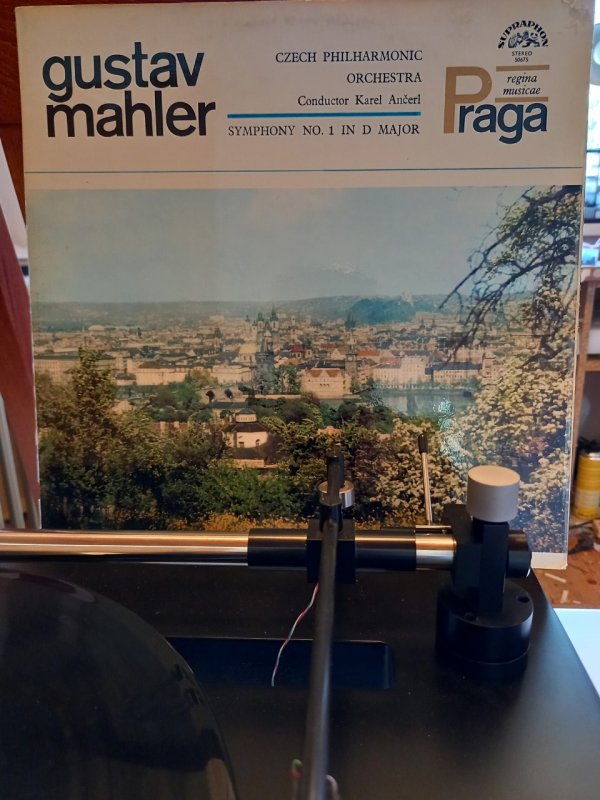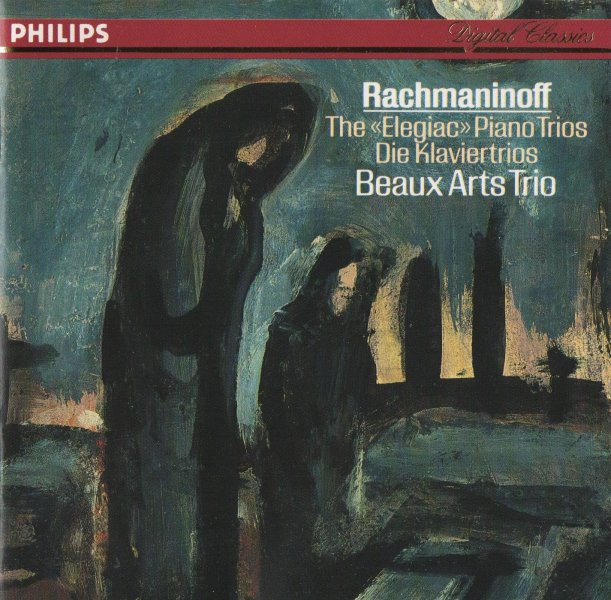Not sure whether you were implying this about the series or not but, while this 6th is with the VPO, not all the others were.This is album is part of his second series, this time on digital with the Vienna Philharmonic, with whom he also did the complete Beethoven symphonies, also on vinyl.
What are you currently listening to (Classical)?
- Thread starter Bachtoven
- Start date
You are using an out of date browser. It may not display this or other websites correctly.
You should upgrade or use an alternative browser.
You should upgrade or use an alternative browser.
Thanks, Kal. You are correct. His second cycle has several orchestras. Besides the VPO there was the Concertgebouw and the NYP. He died before he could do another studio 8th and DGG released an earlier concert performance from Salzburg Festival. I also opened up my box of the 1960's series and both the 2nd and 8th were done with the London Symphony, the rest with his NYP. I have to find where I stored my Laserdiscs, but I also have some of his Mahler symphony recordings on video done on film, all live performances - with the VPO IIRC. They were not the same as the studio DGG recordings. I haven't seen/heard them in decades (don't know if I even have a Laserdisc player anymore or even could play it through my video system.)Not sure whether you were implying this about the series or not but, while this 6th is with the VPO, not all the others were.
Larry
Yes but, to go back to your original post, that M6 is a killer!Thanks, Kal. You are correct. His second cycle has several orchestras. Besides the VPO there was the Concertgebouw and the NYP. He died before he could do another studio 8th and DGG released an earlier concert performance from Salzburg Festival. I also opened up my box of the 1960's series and both the 2nd and 8th were done with the London Symphony, the rest with his NYP. I have to find where I stored my Laserdiscs, but I also have some of his Mahler symphony recordings on video done on film, all live performances - with the VPO IIRC. They were not the same as the studio DGG recordings. I haven't seen/heard them in decades (don't know if I even have a Laserdisc player anymore or even could play it through my video system.)
Last edited:
Your box is blue. Mine is red orange. Incredible tape - they knew what they were doing in 1956. LarryI have the Stravinsky, L'Histoire du Soldat on Sonotape SWB8003 with Robert Mandell conducting the Ars Nova and it is an amazing 2 track tape.
View attachment 79331
I am a fan of Brahms love his music.
Absolutely, the way the percussion sections are reproduced is amazing and the string tone is fantastic! My version of the tape is using acetate as the base material and I can't hear any print through even on the most dynamic parts. If someone didn't know the age of the tape they would think it was recently done. This recording has an "A+" rating on the Charles King list.Your box is blue. Mine is red orange. Incredible tape - they knew what they were doing in 1956. Larry
Last edited:
The organ is my favourite of all instruments because of its incredible frequency response.these two discs would be collecters items for me.
Fantastic share - thank you so much.When I was interviewing Decca recording engineers for my Decca book back in 2013 and 2014, they said that the best thing about changing to digital recording was the ease of editing. One of them told me that he could hear in the LP every edit he did on every recording he engineered. If you buy or see a pro tape machine that came out of a recording studio, you can usually see all the marks from the razor blade cuts on the splicing blocks. Decca was a bit unusual in that when recording with multiple mikes which fed a multichannel mixer, they would mix the tracks onto the 2 track tape machine in real time, so that they did not have a 16 or 24 track tape that they would later remix (highlighting the flute or french horn for example). What you got in the recording studio the day of the session was the product of that day's work. Obviously this was for classical recordings, so there is a real sense of instruments in a real space in the finished recording.
Quick story about edits. When Alicia de Larrocha, the famed Spanish pianist was being recorded in a London area studio by Decca, they finished the session, with all the various takes, and Alicia went back to Spain. When they played back the tapes to choose the best takes for the final master tape, they discovered she had missed a note in one of the pieces, and they did not have a backup take that covered the error. So they packed up all their recording equipment and went back to the studio, this time without Alicia. However, one of the engineers was a competent pianist and they had him play that note every way they could think of. They did get a good match and that note was the one they edited into the final master tape. The engineer, of course, didn't get credit in the album for his one note contribution.
Larry
You authored a book on Decca? My word. Huge Kudos.
What are your view of cassette tapes Larry?One of the great sonic advantages of today's tape duplication at 15ips 2 track is that the duplication is all done in real time, so the tapes you buy from Chad or Tape Project or any commercial company are in real time, inslead of the old high speed ( I think up to 24x) duplication.) It is quite amazing that some many of these older tapes sound as good as they do. That, as well as moving to 4 track stereo tapes which used half of the tape of 2 track tapes (and both sides were duplicated at the same time - half of the tape recorded the music backwards) and the eventual move of many pop and a few classical tapes to 3.75iips from 7.5ips were done to save money. Tape continues to be much more expensive as a medium than vinyl and even high speed duplication is not as fast as a record press (or digital).
Larry
Brahms Violin Concerto - one of the best .I like.
Similar threads
- Replies
- 2
- Views
- 544
- Replies
- 0
- Views
- 187
- Replies
- 3
- Views
- 284
- Replies
- 93
- Views
- 7K
- Replies
- 708
- Views
- 44K
| Steve Williams Site Founder | Site Owner | Administrator | Ron Resnick Site Owner | Administrator | Julian (The Fixer) Website Build | Marketing Managersing |


